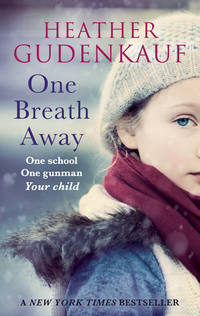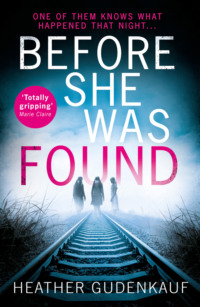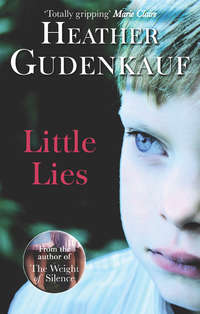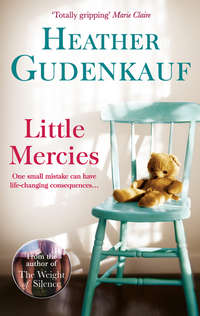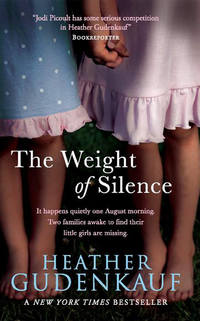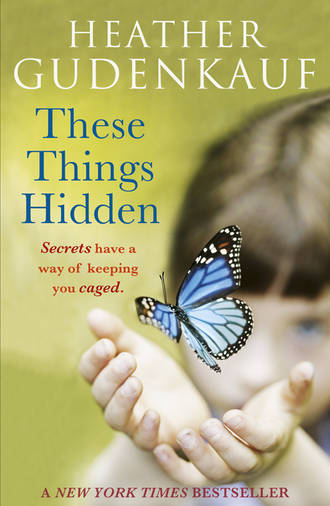
Полная версия
These Things Hidden
Then, inexplicably, Joshua came to them, as miracles often do, on an ordinary day, well after the acceptance that they would never have a child of their own, biological or otherwise, had settled in. More and more, Bookends seems to snatch away all the time she wants, needs, to be with her son. He’ll be heading off to kindergarten soon and she guards what’s left of her time with him fiercely, even though she knows he’d much rather be playing outside than stay with her in the bookstore.
Claire handled all the business aspects of opening the bookstore nearly twelve years ago. Finding the perfect location on oak-lined Sullivan Street, in the newly revitalized downtown section of Linden Falls, securing the small-business loans, ordering the books and hiring the part-time help. Jonathan, for his part, created the most beautiful bookstore Claire could have ever possibly imagined. The building had originally been a dressmaker’s shop, owned by an independent woman who had moved to Linden Falls with her aging father in the mid-1800s. It was lovely, with an intricate tin ceiling and walnut woodwork that Jonathan had uncovered beneath years of old paint, varnish and grime. Rifling through the second floor and the attic, Claire and Jonathan found musty bolts of cloth and bushel-size jars of buttons made of mussel shells, bone and pewter hidden beneath a table. Claire loved to imagine the dresses designed over that table—a christening gown edged with lace, tiny seed pearls sewn to the silk bodice of a wedding dress, a black mourning dress made of cashmere.
Joshua tries to heave himself up on top of the counter, his shoes scrabbling against the front panel. “I’m bored,” he repeats as he slides to the floor. “When will he be here?” he asks again.
Claire steps from behind the counter, reaches down, lifts Joshua into her arms and sets him next to the cash register. “He will be here in about—” she looks at her watch “—half an hour to pick you up. What do you want to do?”
“Tell me about my Gotcha Day,” he orders. Claire gives him a long, expectant look. “Please,” he adds.
“Okay,” Claire agrees, swinging him into her arms. As is often the case lately, she is struck at how big he’s getting. She can hardly believe that he’s five years old. She presses her nose into his neck and breathes in the comforting scent of the Yardley of London soap he bathed with just that morning. Joshua, in a sudden need for privacy, has started ordering her out of the bathroom when he gets ready for his bath.
“Only Truman and Dad can be in here when I take a bath, because we’re all boys,” he explained.
So Claire, after running the bathwater for him, sits on the floor in the hallway, her back resting against the closed bathroom door, and waits, calling through the door every few minutes, “You okay in there?”
Now she carries Joshua to the plush, comfortable sofa that sits in a corner of the bookstore and they settle in for his favorite story. The story of how Joshua became theirs.
“Before we can talk about Gotcha Day,” Claire says, “we have to talk about the first day we met you.” Joshua snuggles more deeply against her and, as she has every day for the past five years, Claire marvels at his sweetness. “Five years ago, last July, Dad and I were sitting at the kitchen table trying to figure out what we were going to have for dinner when the phone rang.”
“It was Dana,” Joshua murmurs as he fingers the milky-colored pearl hanging from her ear.
“It was Dana,” Claire agrees. “And she said that there was a beautiful little boy waiting for us at the hospital.”
“That was me. That was me waiting at the hospital,” Joshua tells Truman, who decides to hobble over to the pair. “And that birth lady couldn’t take care of me so she left me at the fire station, and the fireman found me just lying there in a basket.”
“Hey, who’s telling this story?” Claire asks, and gently pokes him in the ribs.
“You are.” Joshua wrinkles his upturned nose and tries to look sorry.
“That’s okay, we can tell it together,” Claire assures him.
“And all the firemen didn’t know what to do!” Joshua exclaims. “They just stood there and looked at me and said, ‘It’s a baby!’” Joshua holds his hands out, palms up, a look of animated consternation dancing across his face.
“You were a surprise, that’s for sure.” Claire nods in agreement. “The firemen called the police, the police called Dana, Dana took you to the hospital, and Dana called us.”
“And when you held me in your arms for the first time you cried and cried.” Joshua giggles.
“I did,” Claire concurs. “I cried like a baby. You were the most beautiful little boy and—” At the same time they hear the bookstore door open and Jonathan enters, his work jeans and T-shirt streaked and dusty from his current renovation.
“Hey, guys,” he calls, shaking the rain from his black curls. “What’re you doing?”
“Gotcha Day,” Claire says, by way of explanation.
“Ahh,” Jonathan says, a big grin spreading across his face. “The best day ever.”
“Mom cried,” Joshua says, hiding his mouth from Claire, as if not seeing his lips meant she couldn’t hear him.
“I know,” Jonathan whispers back. “I was there.”
“Hey, Dad cried, too,” Claire protests, looking at her boys with affection. “We took you home and after thirty days the judge said, ‘Joshua is now officially a Kelby.’”
“Who was I before?” Joshua asks a bit worriedly.
“You were a badger with three tails,” Jonathan teases.
“You were a wish that we made every morning when we woke up and a prayer we said before we went to bed each night,” Claire tells him, swallowing back tears the way she always did when she thought about how things could have been very different, if Dana, the social worker, had dialed a phone number that wasn’t theirs.
“You were a Kelby the first day we saw you,” Jonathan says, sitting down on the couch so that Joshua was squeezed between his parents.
“A Kelby sandwich,” Joshua declares, taking up his favorite game. “I’m the peanut butter. You’re the bread.”
“You’re the liverwurst,” Jonathan corrects him. “The olive loaf, the fried egg with limburger cheese.”
“No.” Joshua laughs. “You’re a turkey and dressing sandwich.”
“Hey, I like turkey and dressing sandwiches,” Jonathan protests.
“Blech.” Joshua sticks out his tongue.
“Blech,” Claire agrees while Jonathan looks at her over Joshua’s head and their eyes lock. They both know what it’s taken to finally get to this point. The infertility, the wrenching loss of their first foster child. The
heartache and the disappointment they have endured. The past is firmly in the past, where it belongs, their gazes say. We have our little boy and that’s all that matters.
Charm
Charm Tullia pushes open the door to Bookends, her textbook list in one hand, her cell phone in the other, in case Gus calls. She wants her stepfather to be able to reach her at anytime. She knows the time will come when she will receive the call that informs her that Gus has fallen, has a fever or worse. The rain has stopped, but she carefully wipes her wet feet on the rug inside the entrance of the bookstore.
Claire greets her warmly, as she has ever since the first time Charm came into Bookends several years ago. Claire always asks how her nursing classes are going and how her stepfather is doing.
“He’s not doing very well,” Charm tells her. “The home care nurse says we might want to think about getting hospice involved soon.”
“I’m so sorry,” Claire says with genuine sadness in her voice. Charm lowers her head and begins rummaging through her purse, hiding her eyes that filled with tears at the thought of Gus dying. This is what makes it so hard and so easy for Charm to keep returning to Bookends. Claire Kelby is just so nice.
“Is Joshua here today?” Charm asks, looking around for the little boy.
“You just missed him,” Claire says apologetically. “Jonathan picked him up and took him home.”
“Well, tell him hi for me,” Charm says, trying to mask her disappointment, and slides her textbook list across the countertop toward Claire. “I was able to buy most of my books used through the campus store, except for this one, and it is so expensive,” Charm explains, pointing to a title written on the paper. “Do you have any ideas?”
“I’ll do some checking around,” Claire promises her. “When do you graduate? You must be getting close.”
“In May. I can’t wait,” Charm says with a smile.
“I’ll give you a call tomorrow to let you know what I can find out about your book. You take care of yourself, okay, Charm? And remember, you call me if you need anything at all.”
“Thank you,” Charm says again, even though she knows she won’t call her for anything beyond finding the book. As much as Charm admires Claire and her family, as much as she enjoys chatting with her, Charm already knows too much about Claire’s life. If Claire were ever to find out just how much, Charm thinks, she would never see her in the same way again.
After stopping at the grocery store to pick up a few things, Charm drives over the Druid River and into the countryside between Linden Falls and the small town of Cora to check on Gus. Though she doesn’t want to admit it, Gus is getting weaker by the day. As she pulls into the driveway, she examines the small three-bedroom farmhouse she’s lived in since she was ten. Gus has always kept the house in perfect condition and she has to look closely to see any signs of wear and tear, but they are there. The paint on the black shutters is beginning to fade and crack and the white siding needs a good power wash. The lawn is neatly trimmed but not mowed the way Gus would do it, if he were healthy. For a while Charm tried to mow the lawn in the diagonal pattern Gus preferred, but though he never said anything, she could tell the imperfect lines frustrated him. Finally, Charm called a fourteen-year-old neighbor who lives a half-mile down the road to take over lawn duty. But Gus won’t let anyone touch his flower beds. They are still his domain, although with his illness they have suffered for it.
Charm steps from her car, grabs the bags of groceries and walks around to the side entrance. She sees Gus on his knees, his back to her, head bent, and for a moment she thinks he has collapsed. Dropping the grocery bags, she runs toward him. Gus suddenly turns his head as he hears her approach and slowly gets to his feet, shakily lifting his small, portable oxygen tank. “Charm, where were you?” he croaks. “I was worried.” His plaid shirt envelops his thin frame and his khaki pants hang loosely on his hips. He painfully pulls off his gardening gloves and drops them to the ground. He has slicked his thick black hair from his face, and beyond the grayness of his skin and his sunken eyes, Charm can see a glimmer of the handsome man he once was. The man her mother decided to keep around longer than any of her many other boyfriends and actually marry. When Charm was little, she proudly watched the two of them together, her beautiful blonde mother and handsome, funny Gus, the firefighter.
Reanne Tullia was with Gus for four years—a world record for her, Charm thinks. Eventually, her mother got bored playing her part in their happy family, left Gus and then divorced him. Charm was ten when they moved in and fourteen when her mother was ready to move on. Reanne traveled the short distance across the Druid River and went back to live in Linden Falls. Charm went with her for a few weeks, but it was unbearable. In the middle of the night, Charm called Gus and begged him to let her return and he said yes, with no questions. Charm and her brother asked to stay with him and Gus was kind enough to let them.
Now Gus is very sick. Lung cancer, a by-product of his job as a firefighter and years of smoking. Gus took early retirement from the fire department about five years ago, after he got sick. Since his diagnosis, he routinely asks her why she would want to stay with a sick old man. “Because this is my home,” she always tells him. “You are my home.”
“Hey, Gus.” Charm tries to sound casual, not wanting him to know she is worried. “I just went to the bookstore and got some groceries.”
Gus holds her gaze for a long moment, then asks, “How’s that little boy?”
“He wasn’t there, but Claire says he’s doing fine. He starts kindergarten next week. Can you believe it?”
Gus shakes his head. “No, I can’t. I’m glad he’s doing well.”
“I brought you kolache,” Charm says before he can say anything else about Joshua. She hands him the bag of the Czech pastry that he loves so much. “I promise, someday I’ll learn how to make them myself,” she tells him as he reaches for the bag.
“Nah, this is perfect,” he says, though she knows they aren’t. Gus used to make delicious authentic kolache from his grandmother’s recipe. Now, more often than not, he is too weak to stay on his feet for more than ten minutes.
“Your mother called,” Gus’s voice rasps, making him sound older than his fifty years. It’s difficult for Charm to tell whether it’s the cancer or whether he is upset about her mother calling.
Charm and her mother rarely speak. Every once in a while, they try to rebuild their relationship but their encounters usually end in bitter tears and angry words.
“What did she want?” Charm asks glumly.
They walk into the kitchen through the side door and Charm pulls a chair away from the table, its legs scraping noisily against the faded blue-flowered linoleum. Gus lowers himself slowly into the seat. Gus has been wobbly on his feet and she is constantly worried about him falling. Yesterday he tripped on the ridge where the carpet meets the linoleum and took a tumble. Gus bloodied his knees and bruised his elbows in that fall. Charm had to sit him down like he was a three-year-old and clean his scraped knees, covering them with Band-Aids. She knew then that it was time to have a conversation with Gus about getting someone to stay with him during the day while she was at class or at the hospital.
“She didn’t come over, did she?” Charm asks, and her eyes pop open in panic. If her mother has stopped by, she’d have taken one look at Gus and seen how sick he is and, like a vulture, start circling. Gus doesn’t have much, but he owns his house and car outright. Reanne always thought she should have gotten the house in the divorce and Charm wouldn’t put it past her to try and get her hands on it now.
Gus shakes his head, which looks too big for his body now. He has lost so much weight the past few months. “No, she just wanted to talk.” Charm watches as Gus pulls a kolache from the bag and takes a small bite. He does this for her benefit; he doesn’t want her to call the doctor and tell her he isn’t eating. He never eats more than a few nibbles of anything anymore.
“She wanted money, didn’t she?” Charm asks, already knowing the answer. So typical of her mother. No phone calls, no birthday cards, nothing. And then out of the blue, poof! A phone call. Not to Charm, of course. Reanne knows better than that.
“No, no,” Gus says defensively. “She just called to see how we were doing.”
“She mentioned me?” Charm asks skeptically.
“Yeah, she did.” With a trembling hand, Gus brings the kolache slowly back to his lips. His face is pale. He had tried to shave, but missed several stubbly patches on his neck. “She asked how you were, how school was going for you, what was new.”
“What did you tell her?” Charm asks almost fearfully. She doesn’t like her mother knowing about the details of her life. The less she knew, the less she could use against her.
“I didn’t tell her much,” Gus says miserably, and Charm knows he still loves her mother. She is very lovable. Until she’s not, Charm thinks, and then you just want to slap her away like she’s a pesky mosquito. But Gus still hasn’t gotten over her, even after all these years. “I told her that you’re doing well, that you graduate from nursing school next spring. That you’re a nice girl.” Then Gus’s face darkens, a storm cloud passes over his face. “Of course, she asked about your brother. I told her that I hadn’t heard from him in years and haven’t missed the son of a bitch one bit.”
“I bet she loved that!” Charm smiles. Her brother is her mother’s favorite. His father was the only man her mother ever truly loved and, in turn, he wanted nothing to do with her. Smart man, Charm thinks.
Gus sets the kolache on the table and looks at Charm, pain ingrained in his tired blue eyes. “She said that he called and left a strange message on her machine.”
“Oh,” Charm says casually, as if she doesn’t care. “What kind of message?”
“She didn’t say. Said she wanted to talk to you. She wants you to call her back,” Gus says coarsely.
“You look tired,” Charm tells him. “Why don’t you go and lie down for a while.” Gus doesn’t argue, which says everything. Slowly, he pushes his chair away from the kitchen table and gets unsteadily to his feet. “Remember, Jane is going to stop over later tonight,” she reminds him.
Almost every evening, Jane, a nurse from the Visiting Nurse Association, stops by to check on Gus. She’d arranged for Jane to come when Gus began coughing up blood and was starting to get more and more confused. Jane takes his blood pressure, listens to his lungs and makes sure he is being properly cared for. Gus always takes great pride in the way he looks and tries to straighten up a little more before Jane arrives. He makes sure his shirt is tucked in and his hair is combed. Cancer has given his skin a yellowish tinge and transformed his once-strong arms into twigs, but Gus is still a natural flirt.
“Ah, Jane.” Gus smiles. “My favorite nurse.”
“Hey,” Charm says in mock indignation. “I thought I was your favorite nurse.”
“You’re my favorite soon-to-be nurse,” Gus explains. “Jane is my favorite licensed nurse.”
“Oh, well. That’s okay, then,” Charm says, walking right behind Gus in case he falls, like a mother shadowing her wobbly toddler. “Just as long as we’re clear on the topic.” She makes sure Gus is situated safely in his bed, places a fresh glass of water on the side table and double-checks that his oxygen tank is working.
“Charm,” Gus says as he pulls the quilt up beneath his chin. “I talked to someone else today, too.” She can tell by the seriousness of his voice that the conversation was important. “I called the people at hospice …”
“Gus,” she interrupts. “Don’t …” Tears prickle behind her eyes. She’s not ready to have this conversation yet.
“I called hospice,” he says firmly. “When it’s time, I want to be here, in our home. Not at the hospital. Do you understand?”
“It’s too early—” Charm begins, but Gus stops her.
“Charm, kiddo. If you’re going to be a nurse, you’re going to have to learn how to listen to the patient.”
“But you’re not my patient.” She’s trying not to cry and begins to lower the shades to block out the early-afternoon sun.
“When the time comes, you call hospice. I left the number by the phone.”
“Okay,” she agrees, more to please Gus than anything. She’s not ready for Gus to die. He’s the only real family that she has, that she has ever had. She needs him. Exhaustion and pain pull at his face. “Can I get you anything before I have to go to school?” Charm asks, at once hating to leave and feeling relief.
“No, I just want to close my eyes for a while. I’m okay. You go on,” he tells her.
She stands there in the darkened room, next to Gus’s bed for a moment, watching the rise and fall of his chest, listening to the mechanical breaths of the oxygen machine.
What am I going to do without him? Where am I going to go?
Claire
Claire and Jonathan don’t tell Joshua everything about his Gotcha Day. They don’t tell him how Claire watched as Jonathan placed his elbows on the table and rested his head on his hands. How much he hesitated when Dana called about the abandoned infant. How Claire had to tell herself, Be patient, wait him out. How finally, when he lifted his head, there were faint red circles dotting his forehead where his fingers had pressed into the skin. How Claire had wanted to go to him, to kiss each red spot gently, tenderly. “Just until they find another foster home for him, Claire,” Jonathan said with no conviction. “Do you understand? Nothing long-term. No way. I can’t do it.” He shook his head as if still bewildered. “I can’t do Ella all over again. I can’t get attached to a child once more, just to have him taken away in the end. That’s the whole point of foster care, to get the kids back to their parents.”
“Me, either,” Claire had whispered. “I can’t do Ella over again, either.” But somehow Claire knew this mother wouldn’t be coming back, wouldn’t take this little boy away from them. God couldn’t be so cruel, not after all that has happened.
A year earlier, a dead infant was found in a frozen cornfield on the other side of the state. After that, the Iowa state legislature had quickly passed a Safe Haven law, allowing mothers to drop off their newborns under two weeks old at hospitals, police or fire stations without fear of prosecution for abandonment. The doctors figured that this baby was about a month old, and for one brief moment, Claire worried that the police would find the mother who had abandoned him. She quickly brushed away her fears. This little boy, the little boy they would take home, would be the first baby left at a Safe Haven site. He would be theirs.
When Dana set Joshua in Claire’s arms, it was as if she was healed. As if all the miscarriages, the surgery, had never happened. The pain, the loss, became a faint memory. This was what they had waited for all these years. This beautiful, perfect little boy.
On the way home from the hospital they stopped to pick up a few necessities. Diapers, bottles, formula. As an afterthought, Claire grabbed a book filled with baby names. Finally, finally, she would be able to name a child. The book listed each name alphabetically, followed by the name’s origin and meaning. This child’s name, Claire decided, needed to have a special meaning. Since she didn’t give him the gift of birth, she would give him his name and it would mean something.
Claire liked the name Cade, but it meant round or lumpy. Jonathan liked that the name Saul meant prayed for. That was a possibility; they had been praying for this for years. The name Holmes meant safe haven, but Jonathan thought it sounded kind of stuffy and had images of kids calling him Sherlock. Claire flipped through a few more pages and her eyes fell on the name Joshua. Saved by God. “Joshua,” she said out loud, weighing the word on her tongue, feeling it on her lips. Claire smiled at Jonathan and turned in her seat to look back at the baby who would become her son. “Joshua,” she repeated, a little louder and at that moment, in sleep, he breathed a gentle, whispery sigh. Content. Safe. Saved.
Charm
Ever since she started her nursing practicum hours at St. Isadore’s, not a day goes by that Charm doesn’t think about the baby. Even though she knows he is well cared for and loved, she can’t walk by the yellow Safe Haven signs in the hospital without remembering both the sadness and the relief she felt after giving him up, although he wasn’t just hers to give away. In all honesty, she feels mostly relief. If she hadn’t taken him to the fire station, she probably would never have been able to manage to finish high school, let alone go to college. And Charm is convinced that her mother would have somehow found a way to ruin that baby’s life.
Charm rushes down a street lined with the venerable brick buildings that make up St. Anne’s campus. The small, private college sits in the middle of Linden Falls and is surrounded by historical homes and cobblestone streets that are beginning to crumble. Out of breath, she joins a group of students walking to their Leadership and Contemporary Issues in Nursing class. Sophie, a tall, gangly girl who wants to work in pediatric oncology, is in the midst of insisting that she has a psychic link with her mother.


